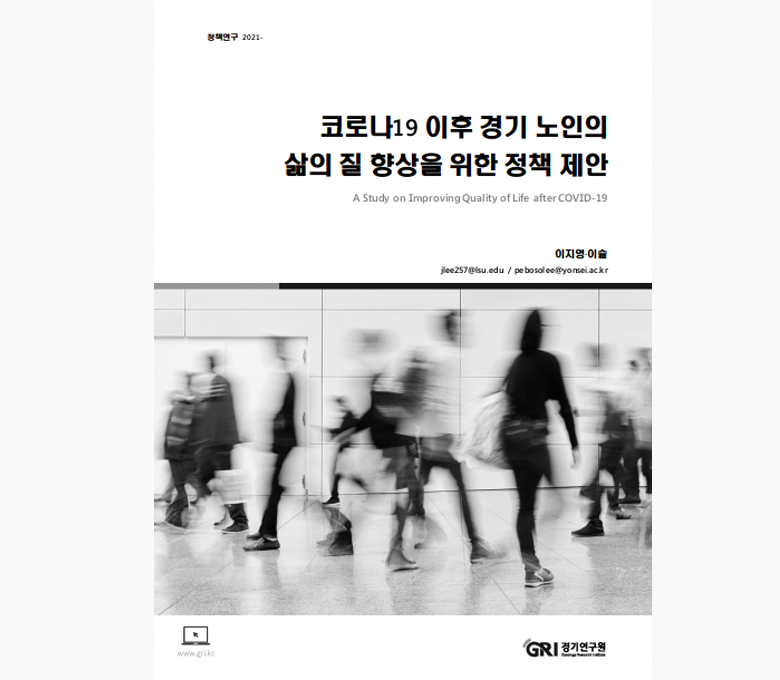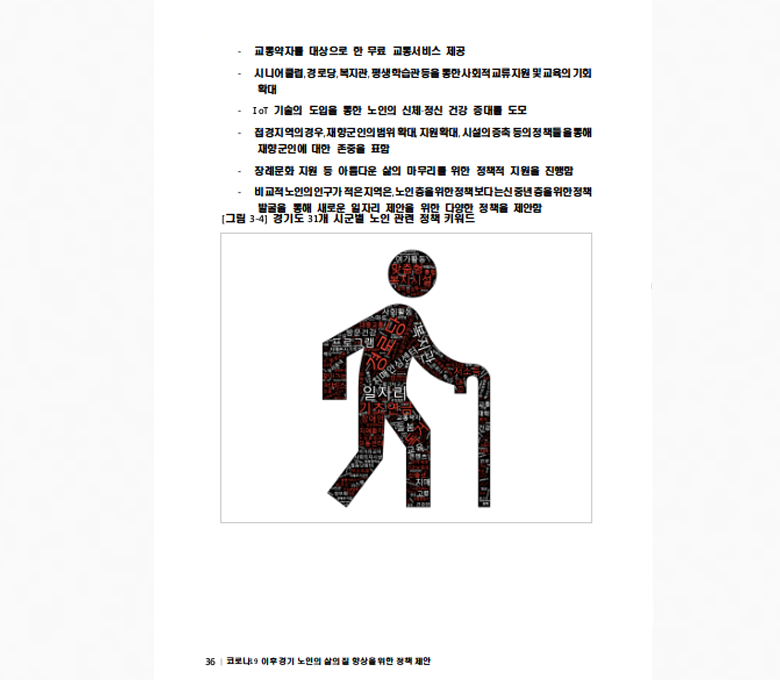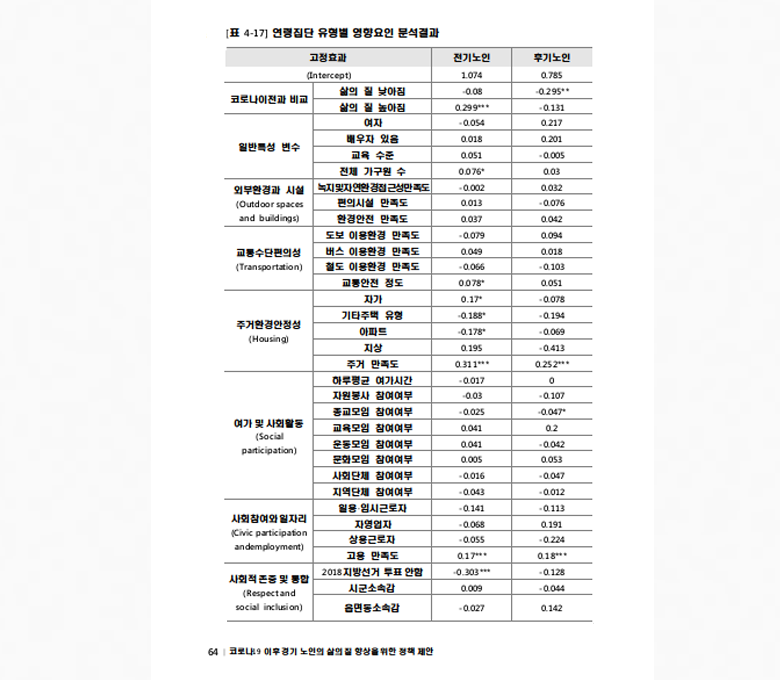A Study on Improving Quality of Life after COVID-19



About Organization
- Name: Gyeonggi Research Institute
- Competition Name: 2021 Research Idea Proposal <Do-do-han reasearch>
Objective
Our research aimed to proactively address the demographic changes in Gyeonggi Province, which is experiencing a rapid increase in its aging population. We focused on regions with a significant proportion of elderly residents and the challenges posed by the COVID-19 pandemic. Despite various policies, there's an imbalance in senior welfare facilities. We used the "2020 Quality of Life Survey of Gyeonggi Province" data to analyze the current situation, variations in quality of life satisfaction among elderly groups, and identify factors affecting the quality of life of those aged 65 and above.
Tools & Technologies
Python, SPSS
Project Details
I took part in a research competition in 2021 that the Gyeonggi Research Institute organized with a focus on creative research concepts and commissioned research projects. Throughout this competition, I collaborated with Seul Lee, a doctoral student from Yonsei University in Seoul, South Korea, and held the team leader position.
As the aging population rapidly increases, it becomes essential to consider public policies for improving their life satisfaction. Despite this importance, there is a lack of public policies for the elderly in Gyeonggi-do, Korea. Based on the ‘2020 Gyeonggi Quality of Life Survey’ and the guidelines for age-friendly cities, this study aims to investigate what factors are associated with life satisfaction for the elderly and suggest public policies that improve their life satisfaction. The data comprises 3,435 older people in 31 administrations of Gyeonggi-do. The descriptive statistics and the multilevel model are used for this study. We find that the guidelines for age-friendly cities and local environmental factors are related to life satisfaction, then examine the change in life satisfaction before and after COVID-19.
In line with these findings, we propose four key policy recommendations:
- Policy Recommendation 1: Gyeonggi-do should extend the implementation of detailed policies aligned with the Age-Friendly City Support Ordinance to the county level. Analysis reveals that the quality of life for Gyeonggi residents aged 65 and above is influenced by urban environmental factors. While various policies exist for dementia patients, relatively fewer policies cater to healthy seniors aged 65 and above. As these seniors' quality of life is significantly affected by health and local community care factors, there is a need to diversify and specify policies targeting this demographic.
- Policy Recommendation 2: Policies should be tailored to the different factors affecting the quality of life for early and late seniors, considering age distribution across regions. Policies for early seniors should focus on improving physical transportation conditions, enhancing social integration, and facilitating intergenerational communication. For late seniors, in addition to senior medical welfare facilities, the establishment of specialized medical institutions should be considered.
- Policy Recommendation 3: A demand survey for senior welfare facilities should be conducted, leading to expansion and enhancement, along with the addition of skilled personnel. The expansion and enhancement of senior welfare facilities will help bridge the gap between demand and supply. The training and employment of skilled personnel will improve employee conditions and increase user satisfaction.
Policy Recommendation 4: In the post-COVID era, personal services and community activities for mental well-being and healthcare should be introduced. Given that a significant percentage of seniors reported decreased life satisfaction compared to pre-COVID times, personalized healthcare services such as smart medication storage, smart utensils, smart canes, smart humidity sensors, smart pillows, smart bands, and smart motion sensors are required. Additionally, community activities on a regional scale should be encouraged to expand social engagement among the elderly.
These policy recommendations aim to enhance the well-being and life satisfaction of the elderly population in Gyeonggi-do, thereby addressing critical demographic and public health challenges.